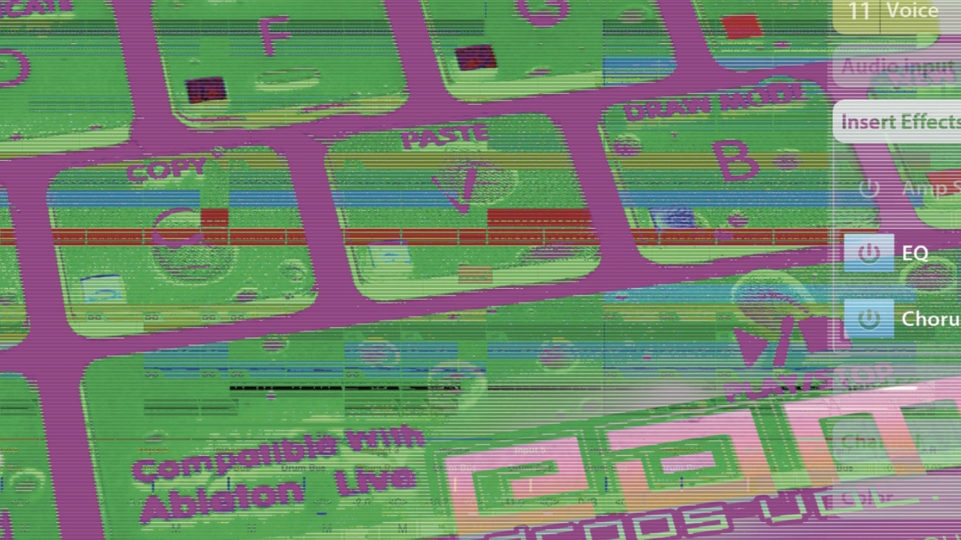Is dance music suffering from a crisis of competence?

Is dance music suffocating under a wave of beige productions or are we just jaded? Harold Heath argues that artists need to take more risks to produce truly great art...
The kick-drum drops out, reach towards the ceiling, the air is filled with whoops and whistles. Then a long whoosh of white noise simultaneously builds the tension whilst signalling the fact that the kick and b-line are about to drop. When they do, everyone is briefly animated for a minute, but then the energy in the room starts to flag — but don’t worry, because they’ll be another near-identical breakdown in about thirty seconds where we can all do it again.
The idea that dance music is in some kind of creative crisis has become more popular in the last few years. There is a lot more music being produced and released than ever before, and if we’re honest, not all of it is destined to become classic. Instead, we have seen a growth in competent, reasonably well-produced but utterly beige, boring music.
Every week, there are hundreds of tracks released that sound as though they’ve been put together quickly, with little thought or creativity, and by the sound of it with no struggle, pain or emotion. Based on templates, sample packs and presets, the hi-hats, snares and claps are always in the same place, the same bass sounds are endlessly recycled and the parts are set out into virtually identical arrangements.
These tunes get knocked out and then polished and preened through high-quality plugins to sound big, fat and shiny. They might get sent off for professional mastering for a final prettification, but they’re still empty. It’s all surface sheen with no emotional depth — it’s merely competent: the kick and bassline EQ’d together nicely, all the parts sitting neatly in separate areas of the frequency section, just like producers are taught to do.

But the question surely has to be: who wants competent art? Surely we should demand art that is bone-marrow-meltingly good, music that burns its way deep into our souls, never to be forgotten.
This glut of competent music is the result of several factors — the lowering of access to production is obviously a big one, as is the ongoing improvement of Digital Audio Workstations like Ableton and Logic. The increase in quality of sample packs might be cited too, as might the change in the cultural perception of the DJ. The frighteningly quick turnover of new releases makes some producers feel that they have to keep churning out a few EPs every month — and inevitably this has to affect quality. But there is also a larger cultural malaise, and it’s the result of living in a society where every release/remix/DJ gig/statement/ move is instantly available for judgement, outside of its original context, on social media.
Fear is a terrible thing; its ripples wash over people far away from its initial source. Fear of the new, of stepping outside the production comfort zone, of producing something vastly different to what’s currently ‘big’, fear that one’s ‘profile’ might fade if a frantic release schedule isn’t maintained. These have all influenced many producers and have subtly changed our dance music culture. And these fears directly affect the quality of the club-nights we go to — be it DJs making safe boring tune selections or producers releasing safe, competent music.
Prior to the digitisation of the music and media industries, if a producer or artist made a shit album they would get completely slated, but the only people who read the reviews would be the people who bought the music magazines. Now the rare sighting of a searing review is spread far and wide. Wrenched from its original context, criticism is re-branded as ‘hating’ — as though having a strong opinion on music is hate. It isn’t. It’s the opposite, it’s love — love for brilliant, awe-inspiring music. A negative review is the result of a deep passion for the kind of tracks that create life-lasting memories, over just another competent utterly lifeless production.
We are in danger of accepting a new standard in music, that of competency. It’s the artists’ job to kick back against this process. Competent dance music promotes the ideals of simplicity, of playing-it-safe, and celebrates banality over invention. In these troubled times, with the rise of the far-right, and bearing in mind the roots of house music in black, Latino and gay American subculture, kicking back against this trend becomes a moral imperative. Because music that is fresh and challenging, music with depth and real emotion, music which consists of more than a few generic sample loops strung together, that’s the kind of music that can engender community and encourage critical thought; and critical thought is the single biggest threat to creeping authoritarianism.
In short, all of us — producers, labels, DJs, even reviewers — need to be a lot fucking braver.





